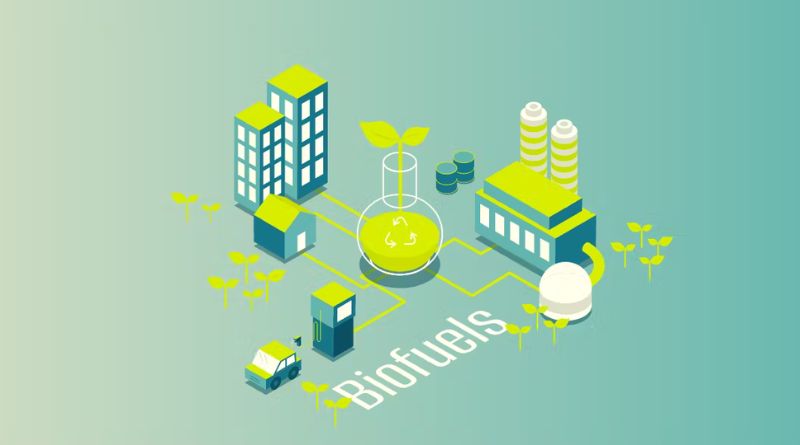Biofuels have emerged as one of the leading alternatives to traditional fossil fuels, offering potential solutions to some of the world’s most pressing energy and environmental challenges. Derived from organic materials, such as plants, algae, and waste products, biofuels are often seen as cleaner and more sustainable than fossil fuels like oil and coal. However, like any energy source, biofuels come with their own set of advantages and disadvantages. In this article, we will explore the pros and cons of biofuels, examining both their potential benefits and drawbacks in the context of the environment, economy, and global energy landscape.
Table of Contents
What Are Biofuels?
Biofuels are energy sources produced from biological materials, typically plants, algae, or organic waste. Unlike fossil fuels, which take millions of years to form, biofuels are renewable because they can be produced continuously as long as raw materials are available. There are several types of biofuels, with the most common being bioethanol and biodiesel.
- Bioethanol is made by fermenting plant sugars (such as from corn, sugarcane, or wheat) and is commonly used as an alternative to gasoline.
- Biodiesel is produced by processing oils or fats from plants and animals (such as soybean oil or waste cooking oil) and can be used as a substitute for diesel fuel in engines.
In theory, biofuels offer a more sustainable energy solution than fossil fuels. However, their production and use raise various concerns that must be carefully evaluated.
The Pros and Cons of Biofuels
Pros of Biofuels
- Renewable and Sustainable One of the primary benefits of biofuels is that they are derived from renewable sources. Unlike fossil fuels, which take millions of years to form and are finite, biofuels can be replenished each year through crops, algae, and waste. As long as biofuel production is managed responsibly and sustainably, it offers a long-term solution to the world’s growing energy demands. This renewability makes biofuels a vital component of the transition to more sustainable energy systems.
- Reduction in Greenhouse Gas Emissions Biofuels are often touted for their ability to reduce greenhouse gas (GHG) emissions. When biofuels are burned for energy, the carbon dioxide (CO2) they release is part of the natural carbon cycle, as it was absorbed by the plants during their growth. This contrasts with fossil fuels, where the CO2 released into the atmosphere comes from carbon stored deep underground for millions of years. As a result, biofuels are considered to be carbon-neutral or at least have a much smaller carbon footprint compared to coal, oil, and natural gas.
- Diversification of Energy Sources Another advantage of biofuels is that they can help diversify the global energy mix, reducing dependence on oil and natural gas. By utilizing locally grown crops or waste products, countries can produce their own fuel and reduce reliance on imported petroleum. This can help improve energy security and reduce vulnerability to global oil price fluctuations and geopolitical conflicts related to oil.
- Support for Rural Economies Biofuel production can provide a significant economic boost to rural areas. Growing crops for biofuels creates jobs in agriculture, farming, and transportation. Additionally, biofuel processing plants can stimulate local economies by providing manufacturing jobs and contributing to infrastructure development. The potential to generate income for farmers by selling crops used for biofuels can also help strengthen rural economies, especially in areas where traditional farming may be struggling.
- Waste Utilization Biofuels can be made from a wide variety of waste materials, including agricultural residues, food waste, and even algae. This reduces the burden on landfills and provides an alternative use for waste that would otherwise contribute to environmental pollution. For example, biodiesel can be produced from used cooking oil, while bioethanol can be made from agricultural waste products. This waste-to-energy approach helps reduce environmental pollution while providing a renewable energy source.
Cons of Biofuels
- Competition with Food Production One of the most significant criticisms of biofuels is that they can compete with food production. Many biofuels, such as ethanol, are made from food crops like corn, sugarcane, and soybeans. As demand for biofuels increases, more land may be used for growing biofuel crops rather than food crops, potentially driving up food prices and exacerbating food insecurity, especially in developing countries. This “food vs. fuel” debate has sparked concerns about the impact of biofuel production on global food supply and affordability.
- Land and Water Use The production of biofuels requires significant amounts of land, water, and other natural resources. Large-scale biofuel farming can lead to deforestation, as forests are cleared to make way for biofuel crops. This deforestation can contribute to loss of biodiversity, soil degradation, and reduced carbon sequestration capacity. Additionally, biofuel crops often require substantial water resources for irrigation, which can put a strain on water supplies, especially in arid regions. These environmental impacts need to be carefully managed to ensure that biofuels are produced sustainably.
- Energy Efficiency and Cost While biofuels are often seen as an environmentally friendly alternative to fossil fuels, the energy required to produce them is not always efficient. The cultivation, harvesting, and processing of biofuel crops can be energy-intensive, which means that the net energy gain from biofuels may not always be as high as expected. Additionally, the cost of producing biofuels can be higher than that of fossil fuels, especially when subsidies and government support are factored in. This makes biofuels less economically viable in some regions, especially when oil prices are low.
- Environmental Impacts of Large-Scale Farming Large-scale biofuel production can have detrimental environmental impacts, particularly when it comes to monoculture farming practices. Monoculture farming (growing a single crop over a large area) can deplete soil nutrients, increase the need for pesticides and fertilizers, and lead to reduced biodiversity. Furthermore, the large-scale farming of biofuel crops can cause water pollution from runoff containing fertilizers and pesticides. These practices can harm local ecosystems and undermine the environmental benefits that biofuels are intended to provide.
- Limited Availability of Suitable Land While biofuels offer the potential for renewable energy, they are dependent on suitable land for crop cultivation. In regions where land is scarce or where agricultural land is already being used for food production, it may not be feasible to expand biofuel production. This is particularly true in densely populated areas where land use is highly regulated, making it difficult to allocate additional land for biofuel farming. As demand for biofuels grows, there may be increasing competition for land that is already in short supply.
Conclusion
The pros and cons of biofuels highlight both their potential and their challenges. Biofuels offer a renewable and sustainable energy source that can reduce greenhouse gas emissions, promote energy independence, and support rural economies. However, they also come with significant environmental and social challenges, including competition with food production, land and water use concerns, and the environmental impacts of large-scale farming.
As technology advances and more sustainable farming and production practices are developed, biofuels may become a more viable and environmentally friendly alternative to fossil fuels. However, it is essential that biofuels are produced responsibly and in conjunction with other renewable energy solutions to ensure that their benefits outweigh their drawbacks.
Frequently Asked Questions
1. What are biofuels? Biofuels are renewable energy sources made from organic materials such as plants, algae, or waste products. They are commonly used as alternatives to gasoline and diesel fuel in vehicles and power generation.
2. Are biofuels carbon-neutral? Biofuels are often considered carbon-neutral because the plants used to produce them absorb carbon dioxide during growth. However, the entire production process, including land use, fertilizer application, and transportation, can still result in carbon emissions.
3. Do biofuels compete with food production? Yes, biofuels can compete with food production, particularly when food crops like corn or soybeans are used to produce biofuels. This can drive up food prices and affect food availability, particularly in developing countries.
4. What are the environmental impacts of biofuels? The environmental impacts of biofuels include land-use changes such as deforestation, water depletion, and pollution from fertilizers and pesticides. Large-scale biofuel farming can also harm biodiversity and contribute to soil degradation.
5. Can biofuels replace fossil fuels? While biofuels can play an important role in reducing reliance on fossil fuels, they are unlikely to completely replace fossil fuels. A combination of biofuels, renewable energy sources, and energy efficiency measures is needed for a sustainable energy future.






